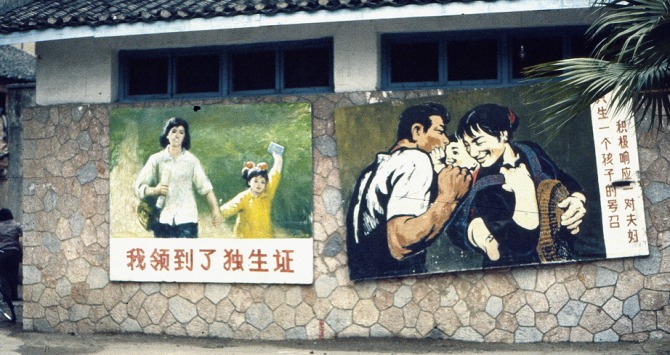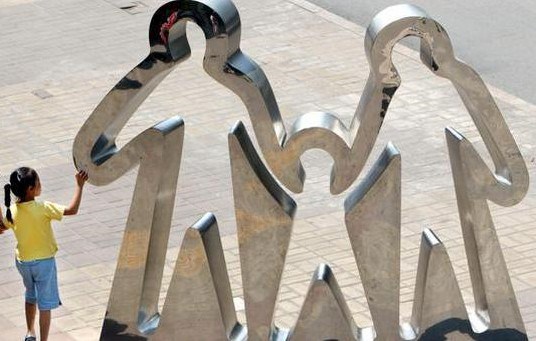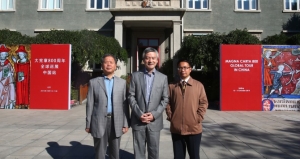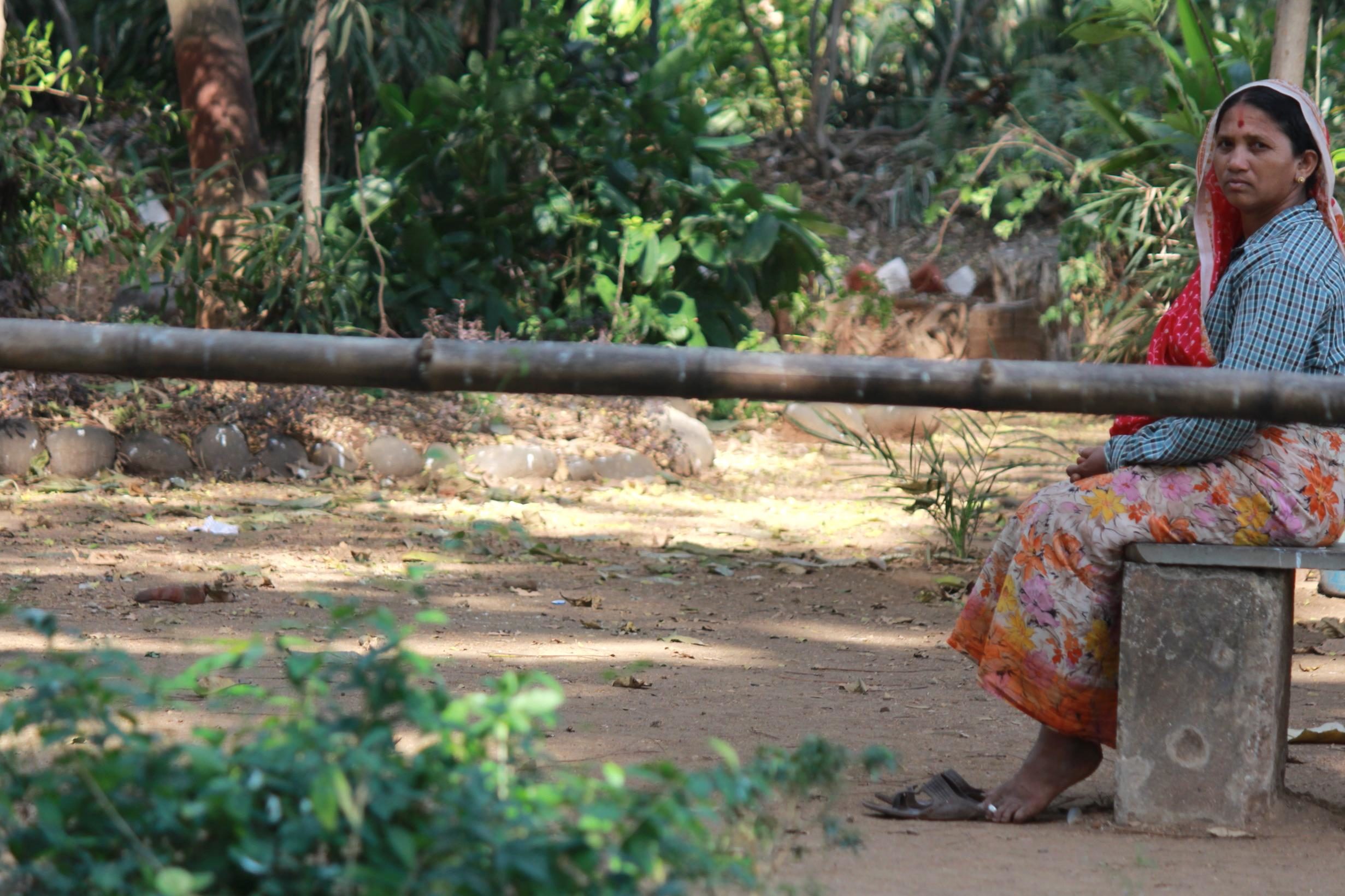Last week, it was announced that China’s one-child policy, first introduced in the late 1970s, was to be formally adjusted. In the first of a series of posts, academics from the Department of International Development examine the various reasons behind the decision and establish whether it really is a revolutionary move.
For Growth, Not Rights – Jude Howell
 At last the Chinese Communist Party (CCP) has taken the plunge and called an end to China’s One-Child Policy. In fact, moves in this direction had already taken place in recent years as some cities such as Shanghai granted couples the right to have two children. Moreover, rural residents have long been able to have more than one child, if their first child was a girl, and ethnic minorities have been exempt from the stringencies of the policy.
At last the Chinese Communist Party (CCP) has taken the plunge and called an end to China’s One-Child Policy. In fact, moves in this direction had already taken place in recent years as some cities such as Shanghai granted couples the right to have two children. Moreover, rural residents have long been able to have more than one child, if their first child was a girl, and ethnic minorities have been exempt from the stringencies of the policy.
What is driving this shift is the CCP’s desire to maintain economic growth and ultimately political stability at all cost. The CCP hopes that this policy will address not only the economic consequences of a declining workforce in terms of maintaining economic growth but also the related welfare costs that lie ahead in caring for an ageing population. As long as the CCP can continue to deliver the economic goods, then it can maintain a sufficient modicum of public support to continue in power.
We should be under no illusions that this policy shift heralds a softer state that is attentive to issues of rights or feminist notions of reproductive control. There will still be state intrusion into private lives where couples go beyond two children. It is not yet clear whether the cap of two children even signals a retreat from state monitoring of pregnancies at community level. Nor should we imagine that the CCP has suddenly recognised the follies of decades of forced abortions and forced sterilisations. There will be no reconciliation tribunal to redress the wrongs done to women forced to abort their children or to the rights activists who dared to expose violations and campaign for change. A shift in family planning policy does not imply a shift towards a rights-enlightened state.
Jude Howell is Professor in International Development and convenor of the DV432 module, ‘China in Developmental Perspective’.

Good news, but human rights issues remain – Elliott Green
 The Chinese government’s decision to abandon the One Child Policy is good news in several ways.
The Chinese government’s decision to abandon the One Child Policy is good news in several ways.
- First, it gives greater freedom to Chinese citizens in deciding how many children they want to have.
- Second, it will help to slow China’s rapidly ageing population and growing age dependency ratio, thereby potentially raising economic growth.
- Third, it should help to reduce China’s problem with missing women, which has been exacerbated by couples who used sex-selective abortion to guarantee their only child would be a boy.
Yet in many ways the news is not as revolutionary as it first appears. It is actually incorrect to say China has “abandoned” its one-child policy, when in fact it has altered it to a two-child policy. Thus while couples have a bit more reproductive freedom than they had before, the Chinese state still limits the number of children parents can have, which itself is a human rights violation.
Elliott Green is Associate Professor of Development Studies and convenor of the DV442 module, ‘Key Issues in Development Studies’.
This policy could have affected any of us – Diana Weinhold
 This summer I met a well-educated, well-travelled Chinese couple at the community swimming pool in Madison as their 9-year-old daughter was a friend of my niece. The husband was in the US for a year on an academic sabbatical and we chatted politely for some time as the girls splashed around. I showed them my photos from my summer backpacking around China in 1987, and they shared stories of their adventures road-tripping around the US.
This summer I met a well-educated, well-travelled Chinese couple at the community swimming pool in Madison as their 9-year-old daughter was a friend of my niece. The husband was in the US for a year on an academic sabbatical and we chatted politely for some time as the girls splashed around. I showed them my photos from my summer backpacking around China in 1987, and they shared stories of their adventures road-tripping around the US.
We also discussed the girls and their experiences of American schools, and then at some point in the course of conversation it emerged that in fact the couple had two children – the daughter playing in the pool now speaking perfect English, and a younger toddler boy, left behind in China with an aunt.
This was clearly information they did not routinely share, and the mere mention of the boy brought the wife to tears, clearly deeply distressed by the year-long separation. As they explained, the toddler was ‘illegal’ and did not have a passport to travel. He would not have a right for a school place (which would have to be arranged informally and at a cost), and if knowledge of his existence were to get out, the father would lose his university position.
This couple could have been any of us, if we lived in China.
Diana Weinhold is Associate Professor of Development Economics and convenor of the DV490 module, ‘Economic Development Policy’.

Consolidation, not Revolution – Kate Meagher
 In reality, China’s one-child policy hasn’t been a real one-child policy for some time. I began to notice this some fifteen years ago when Chinese students mentioned having a sibling. As it turns out, there have been a whole raft of exemptions to the one child policy for decades. Some of the students I have spoken to explained that their parents benefited from the right to pay a fee, or a fine, to have a second child. This is an option available only to the wealthy, since the fee is a multiple of the annual average income in China.
In reality, China’s one-child policy hasn’t been a real one-child policy for some time. I began to notice this some fifteen years ago when Chinese students mentioned having a sibling. As it turns out, there have been a whole raft of exemptions to the one child policy for decades. Some of the students I have spoken to explained that their parents benefited from the right to pay a fee, or a fine, to have a second child. This is an option available only to the wealthy, since the fee is a multiple of the annual average income in China.
But a wide range of other exemptions to the policy have been in place for many years. Ethnic minorities are exempt from the one child policy, and in the 1980s, the one-child limit was increased to two children in the rural areas under certain conditions. Since 1987, local officials have had the right to grant exceptions in cases in which the first child had severe health problems. Over time, parents have been allowed to apply for permission to have a second child if the first child is a girl, or if both parents are only children, and since 2013, if only one parent is an only child. By 2007, only 36% of Chinese citizens were restricted to one child, according to the government.
By repealing the one child policy, the Chinese government is only consolidating what has already been allowed for the majority of the population for some time. Rather than ‘echoing the will of the people’, Beijing is carrying through their long-standing strategy of incrementalism and experimentation in policy making.
Kate Meagher is Associate Professor in Development Studies, convenor of the DV433 module, ‘The Informal Economy and Development’, and director of the MSc in Development Studies for 2015/16.
Relaxation of control, but control remains – Mayling Birney
 Besides the clear economic benefits, it’s good news to relax one important front on which the state has asserted an invasive, repressive relationship over the public.
Besides the clear economic benefits, it’s good news to relax one important front on which the state has asserted an invasive, repressive relationship over the public.
This certainly won’t by itself change the state’s relationship with the public, but it at least mitigates one of the reasons for the state to insist on so much dominance and invest so much in repression.
Still, the continuation of family planning as a two-child policy means that the state will maintain its coercive apparatus around controlling reproduction and families, even if fewer resources need to be spent on it.
Mayling Birney is Assistant Professor in International Development and co-director of the MSc in Development Management. She has recently featured in the New York Times on China’s one-child policy.
Related Posts
   |





